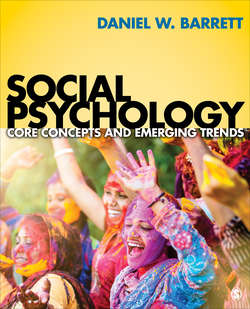Читать книгу Social Psychology - Daniel W. Barrett - Страница 26
На сайте Литреса книга снята с продажи.
Social Psychology And The Quest For Human Nature
ОглавлениеWhat is human nature? If you had to list the fundamental topics that get to the very heart of what it means to be human, what would they be? When I ask my students, friends, or dead philosophers, several common themes emerge: Do humans have free will? Are people mostly independent or conformist? Are we rational? What is the self? Do we really need other people? Are people inherently good? These issues go a long way toward capturing the essence of humanity. (See Table 1.1.) Questions like these often come to the fore during late adolescence and early adulthood and are most salient during our college years (Hofer & Pintrich, 1997). They have been pondered across thousands of years of human history and in cultures all around the globe, in part because their answers have profound implications for how we understand ourselves. The fact that we can and do contemplate these questions in part defines the very essence of who we—as intelligent, self-aware beings—are as well as how we are different from other animals. The French sculptor Auguste Rodin captured the human propensity for wonder in his famous work, The Thinker (see photo).
Auguste Rodin’s The Thinker
Getty—516604053.
These six enduring questions will serve as continuing themes throughout this book, providing reminders about the relevance of social psychological research to the core of human nature and to our everyday lives. One appealing aspect of social psychology is that it can shed light on these questions. Social psychology cannot give life meaning or determine what is good or evil, but it can inform our thinking about these topics by scientifically studying what we do and why we do it. Although these questions are both philosophical and psychological, we’ll leave the philosophy to the philosophers and in this text focus on only their psychological, scientific aspects. Let’s elaborate on these questions.
Table 1.1
